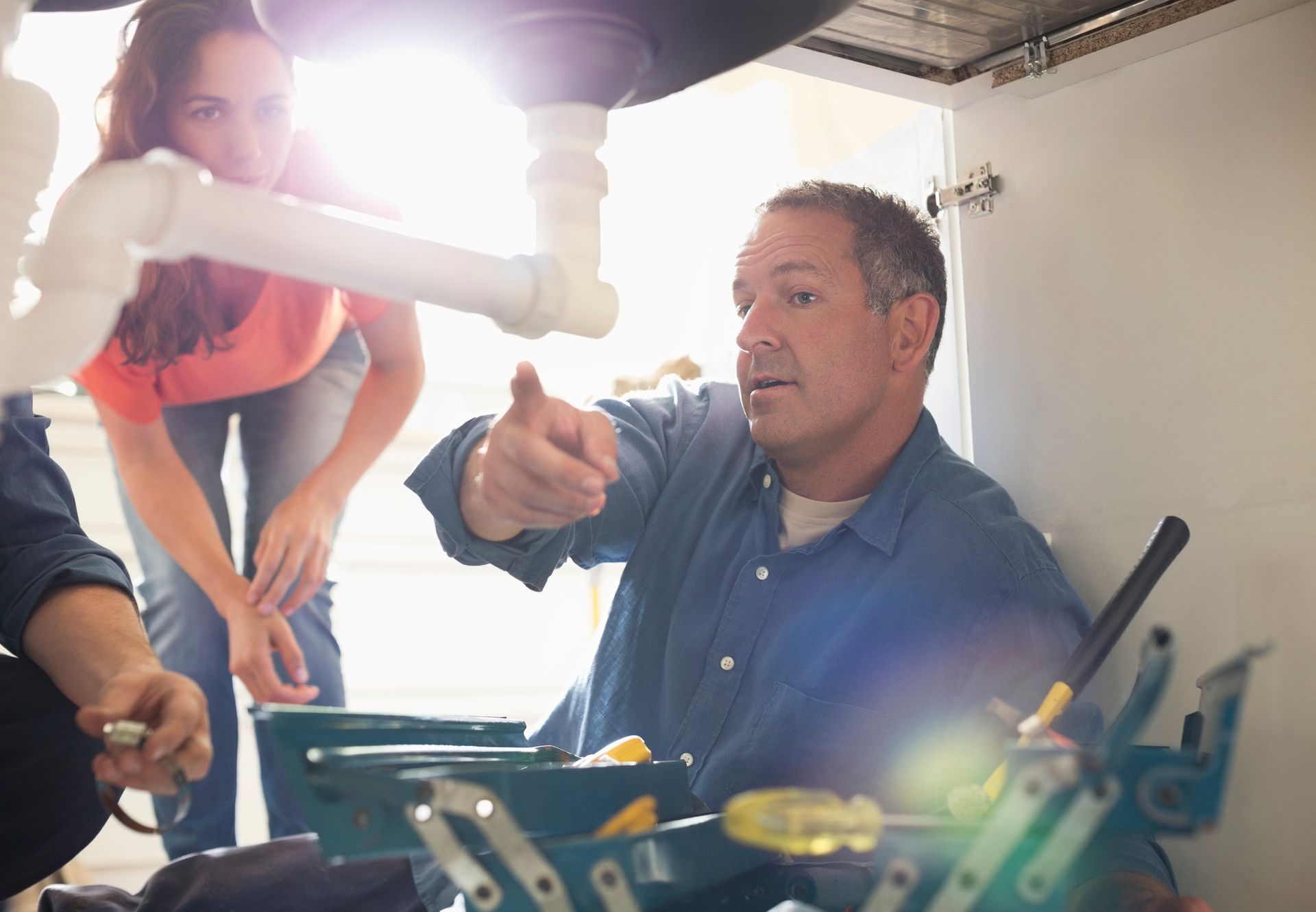
How many times have you seen movies with comedic scenes based around a plumbing disaster? The toilet overflows, the washing machine spews out suds, or the dishwasher floods all over a brand-new hardwood floor. In film, these mishaps are just for fun, but in real life, they’re expensive and annoying hassles.
Luckily, you can avoid many plumbing disasters with some simple preventative maintenance and a little common sense. The tips below will help you avoid 3 such disasters.
1. Total Garbage Disposal Breakdown
Have you ever heard that eggshells sharpen the blades of your garbage disposal? That’s a myth. Grinding up the inedible bits of eggs actually gives them a sand-like texture that can cling to pipe walls and lead to clogs.
Of course, eggshells aren’t the only substance you should keep out of your garbage disposal. Train your family members never to shove any of the following down that specialized drain either:
- Starchy and fibrous foods, such as rice, pasta, potatoes, beans, and vegetable peels Any form of fat (used cooking oil, leftover bacon grease, fat trimmed off your steak, etc.)
- Hard organic matter, such as bones, fruit pits, shrimp shells, or seeds Actual garbage, even though the name of the appliance implies otherwise
What can you actually put in the disposal? Think small portions. A few noodles or grains of rice won’t cause much trouble, and you’re fine to wash the last remnants of your soup down the disposal. Just flush plenty of cold water down the drain with it.
Naturally, no matter how cautious you are with your disposal, some foods will build up in there over time. Request a preventative disposal cleanout from your plumber every 2 or 3 years to keep this trusty appliance in tip-top shape.
2. Flooding From the Laundry Machine
Having a private washing machine is a luxury many people enjoy—but that feeling of luxury fades anytime the machine floods. Most often, laundry machines leak water in huge amounts because of a poorly connected hose. Even if you attached the hose properly, it can still come loose as the machine shakes back and forth, especially if you tend to load it to capacity.
Other causes of laundry machine leakage include doors that won’t close all the way, holes in any of the pipes carrying water to and from the machine, and clogged drain pipes.
Together, you and your plumber can help prevent these problems with a little regular maintenance. Right now, get in the habit of checking the back hose on your laundry machine at least once a month. Do this every time you put in a load if that’s easier to remember. You should also replace the hose every 3 to 5 years. Look for hoses braided with stainless steel rather than the slightly cheaper rubber options.
If you request a yearly plumbing maintenance call, have your plumber include washing machine leak checks on the to-do list. If he or she spots any problems, you can fix them before a major flood occurs.
3. Sudden Water Heater Failure
A cold shower is nice on occasion, but it can also serve as a rude awakening that your water heater is permanently out of commission. Lucky for you, homeowners can watch for signs other than a total lack of warm water to know when the water heater needs work. These signs include:
- Rusty water coming through faucets anytime you turn the hot-water handle
- Strange noises, such as bumping or rumbling, emitted by the water heater
- Small pools of water around the appliance
- Strange odors in hot water
- Decreased water pressure with hot water
Water heater problems are complex, so it’s best to call in a professional to assess the situation when you notice these symptoms. Your plumber will examine your water heater and recommend a reliable repair solution or a replacement option.
Reliable Rooter & Plumbing is happy to help our customers perform preventive maintenance and avoid costly plumbing repair bills. Contact us today
to learn more about our preventive services.









